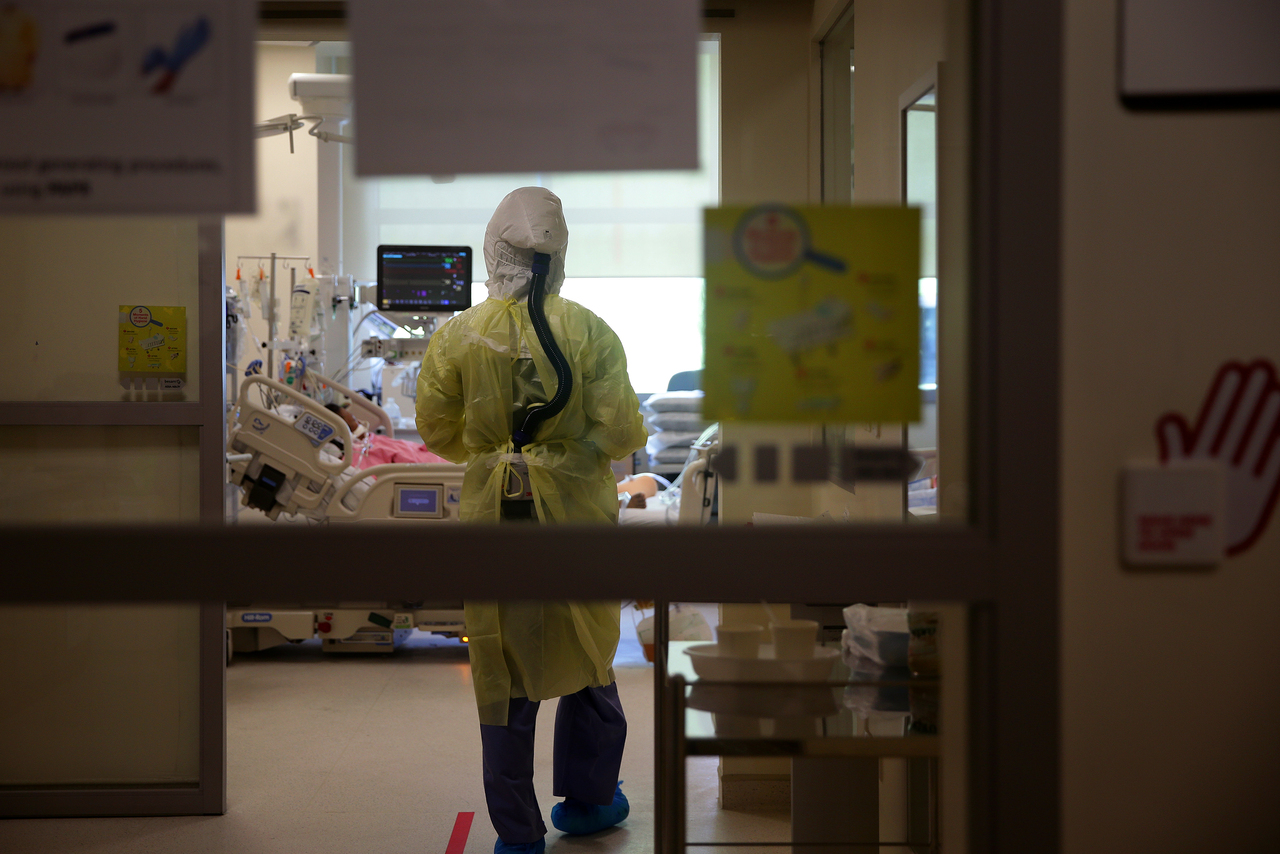About 60% of Singapore's 219 Covid-19 ICU beds are occupied: Janil Puthucheary
Sign up now: Get ST's newsletters delivered to your inbox

At its highest, there were 171 Covid-19 cases in intensive care units, said Senior Minister of State for Health Janil Puthucheary.
PHOTO: ST FILE
Timothy Goh
Follow topic:
SINGAPORE - About 60 per cent of the 219 intensive care unit (ICU) beds reserved for Covid-19 patients are currently occupied, Senior Minister of State for Health Janil Puthucheary told Parliament on Monday (Nov 1).
Delivering an update on the nation's ICU and hospital capacity, Dr Janil said there are currently 130 patients who are critically ill in the ICU.
Some are intubated and require a mechanical ventilator to breathe, and all require the continuous care of an ICU team, he added.
These patients stay for an average of 11 to 15 days in the ICU, and some stay for up to a month.
Dr Janil added that besides Covid-19 cases, there are also non-Covid-19 patients with life-threatening medical conditions that require intensive care that adds to the sustained load that hospitals here have to bear.
Singapore's public hospitals currently operate about 163 adult ICU beds for non-Covid-19 patients, with an average occupancy of about 80 per cent, he said.
In comparison, Singapore had 298 adult ICU beds in 2019, with an average occupancy rate of 63 per cent.
"So we have been reducing non-Covid-19 ICU beds, in order to cope with more Covid-19 patients. This is one of the key trade-offs when we increase the number of Covid-19 ICU beds," said Dr Janil.
The total number of ICU beds has increased to 382 for both Covid-19 and non-Covid-19 patients over the past two months, he said.
"The need to increase the capacity of our healthcare system is a heavy burden carried by the staff, our healthcare workers," he added.
"The need to increase the capacity of our healthcare system is a heavy burden carried by the staff, our healthcare workers," he added.
In preparation for a potential rise in severe cases, the country will increase the number of ICU beds for Covid-19 patients from 219 to 280 by this week. If needed, this can be further expanded to 350 beds in the future, said Dr Janil.
The Government has been repurposing existing hospital wards into additional ICU beds, he added. Private hospitals are also being asked to set aside ICU beds to handle critically ill patients.
But Dr Janil noted that increasing ICU beds takes time, and affects regular hospital operations.
"The most important limit is the manpower required to staff ICU beds. Patients in the ICU need trained staff, who must be able to provide individualised care, including round-the-clock monitoring and continuous care. So, any increase in ICU bed capacity must be supported by an increase in manpower," he said.
Previously-trained ICU staff have been deployed to help with patient care, while non-ICU staff have been roped in as well. They have to undergo training to operate the specialised equipment in the ICU.
"Logistically, we can keep stepping up our ICU beds. We have... all the things that are needed. But not enough people. As a result, if we keep increasing our beds, we stretch and stretch our healthcare workers. We will come to the point that they will no longer be able to provide that continuous excellent care," he warned.
Acknowledging that ICU staff have been "stretched to their limit" in the past two weeks, he noted that at its highest, there were 171 Covid-19 cases in the ICU.
This situation has begun to ease a little, falling to 130 on Sunday (Oct 31).
Outside of hospitals, Singapore's Covid-19 Treatment Facilities now have a capacity of close to 2,000 beds, less than half of which are occupied. More beds are being added, with the aim of reaching 4,000 beds in November.
Leader of the Opposition Pritam Singh later asked why dining-in in groups of up to five has not been allowed, given the easing of border measures.
In response, Health Minister Ong Ye Kung said it was not yet time for this, because meeting in groups of five increases the risk of transmission.
"If it is transmission between vaccinated individuals, it may not be that serious. But we also live with older people, with seniors who may be unvaccinated, and we can inadvertently bring the virus to them," he said.
The situation with vaccinated travel lanes is different as currently, countries around the world have equal or lower infection rates than Singapore itself, he noted.
Travellers are also subject to restrictions, said Mr Ong, such as having to be vaccinated and tested.
But he added: "I think this also presents possibilities for us to think about in the future... whether through tests, through vaccination, we can allow gatherings that are a bit more free."


